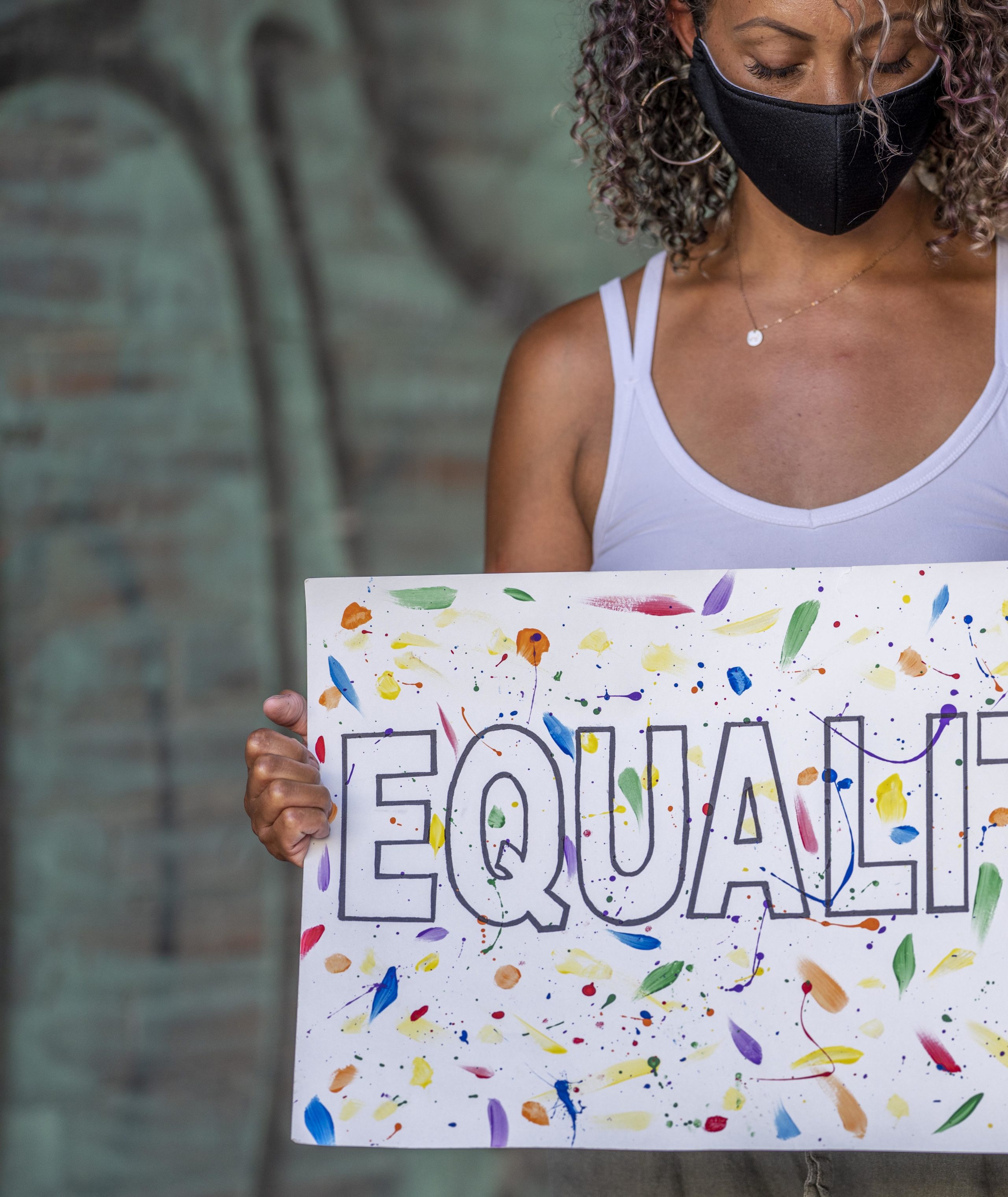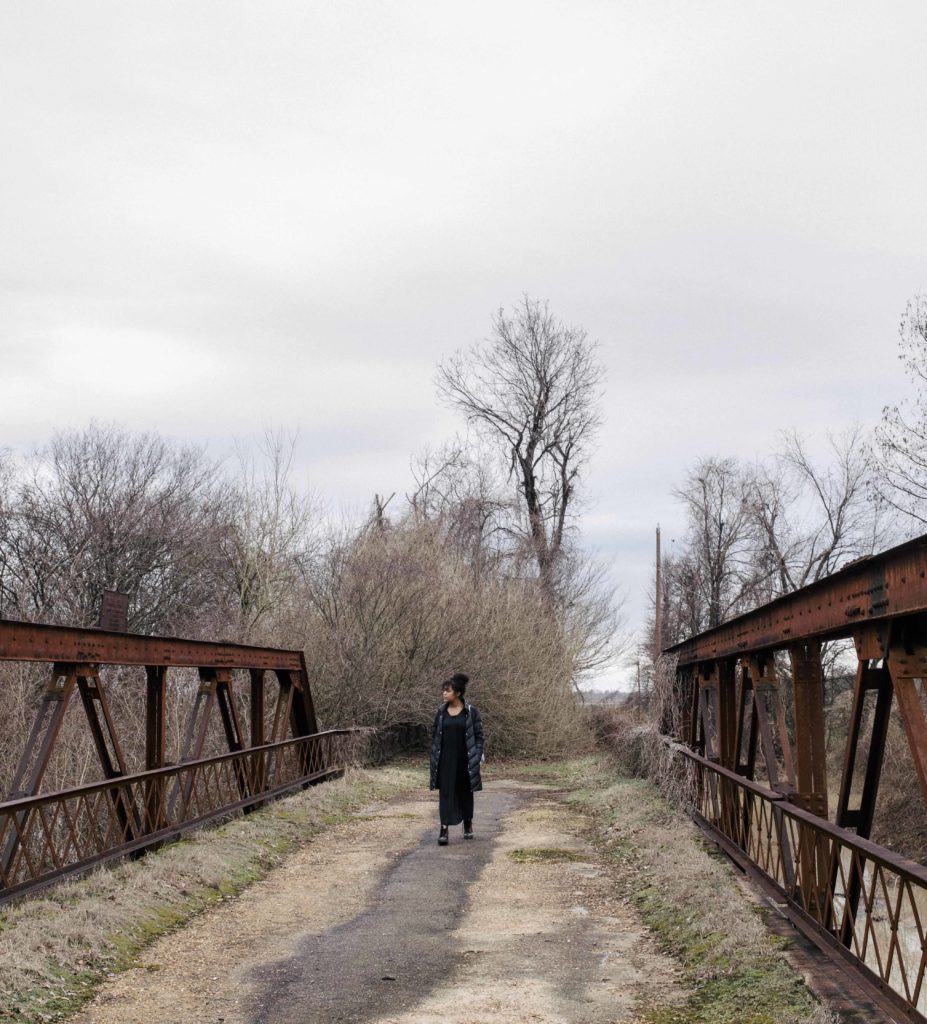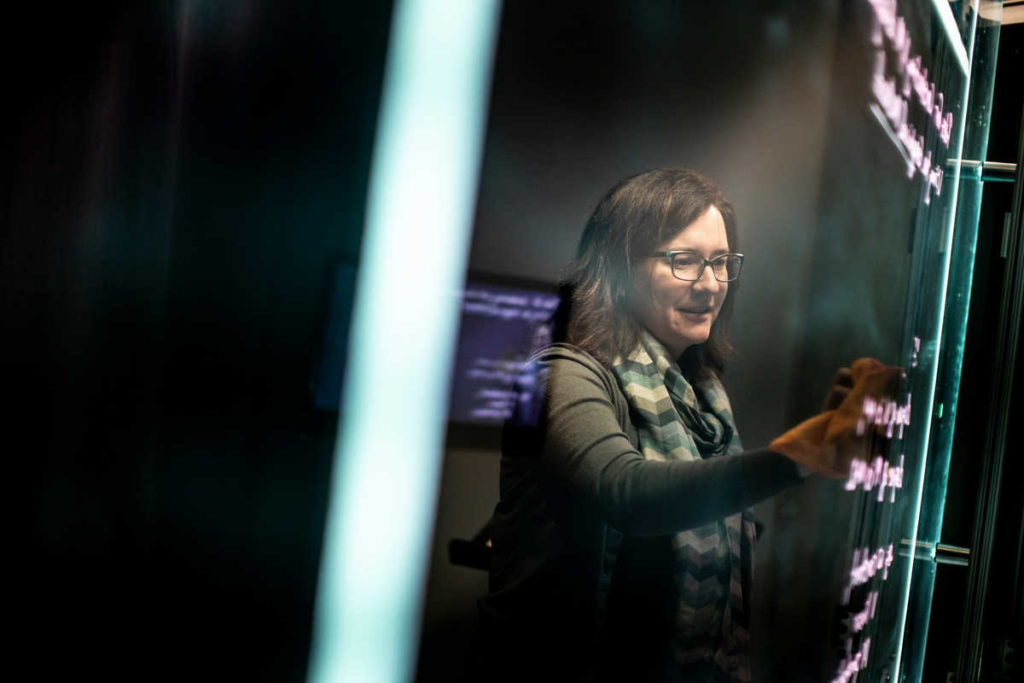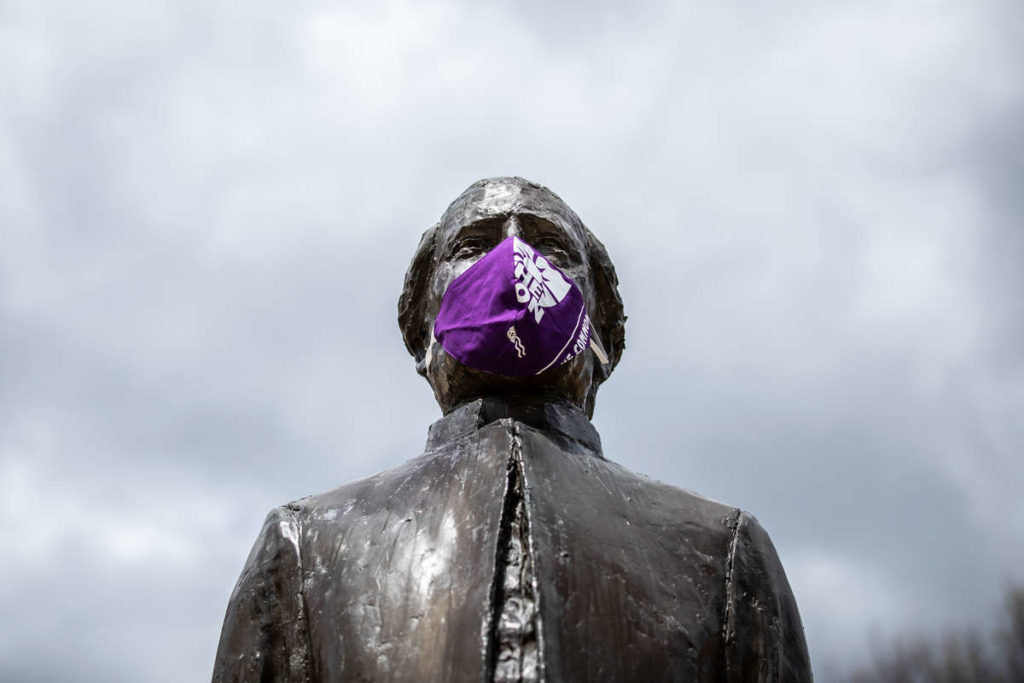This story is featured in the fall/winter 2020 issue of St. Thomas magazine.
As 2020 draws to a close, it’ll likely be remembered as one that turned life as everyone knew it upside down.
Dismissing 2020, though, would be a big mistake.
Through all the pain endured this year, there were several lessons to be learned as the COVID-19 pandemic and killing of George Floyd in Minneapolis exposed many inequities in the community. Forgetting those lessons would prevent much-needed progress. As St. Thomas looks back on this challenging year, here are some of the ways university members embraced those lessons and moved forward with purpose.
Racial Justice Initiative
Earlier this year, Yohuru Williams announced he was leaving his post as dean of the College of Arts and Sciences for a position with St. John’s University in New York.
Then George Floyd was killed by Minneapolis police last May. Three weeks later, President Julie Sullivan and Provost Richard Plumb announced the Racial Justice Initiative (RJI) as an effort to drive meaningful community change.
They also revealed Williams had decided to stay, accepting the position of Distinguished University Chair, Professor and Founding Director of the Racial Justice Initiative (RJI).
“The externally facing Racial Justice Initiative will be involved in facilitating research, exploring community partnerships, and encouraging dialogue and critical conversations around addressing the historical roots of racial inequality in the United States,” Williams said. “I have been involved in a number of these conversations across the country, and the RJI provides me a platform to continue that work while exploring ways to amplify efforts to rethink and tackle issues of racism and racial disparities in Minnesota and beyond.”
A noted scholar of the civil rights and Black Power movement and an education activist, Williams is a sought-after national commentator on the pressing topics of race and social justice issues. He opted to stay at St. Thomas to help foster change within the Twin Cities community.
“With the moment in front of us now, there is a tremendous opportunity to see the Twin Cities as a laboratory for change,” he said. “Here in Minnesota, if we can think creatively, engage broadly and partner, with humility, concerning the work we must all do together, we can make a big impact. There are a host of ways in which national conversations about equity, justice and race can have real impact here. Understanding and facing our history is a big part of that work.”
Williams plans on collaborating with individuals and organizations already engaged in reimagining a future for the Twin Cities free from racial disparities.
“If we’re successful,” he said, “we could then help to share that widely and be the model for how communities do this work elsewhere. Having the university be a big part of that work is exciting for me.”
Tommie Corps
Many nonprofits depend on retirees to serve as volunteers. But with older adults particularly vulnerable to COVID-19, younger people have been asked to step up and volunteer during the pandemic. The Center for the Common Good created Tommie Corps to help with this mission.
The program, made possible by donations from Lee and Penny Anderson and the GHR Foundation, gave two dozen students $4,000 scholarships for 150 volunteer hours fulfilled last July and August. They were paired with one of 15 community partners including Pillsbury United Communities, Second Harvest Heartland, YWCA St. Paul and Keystone Community Services.
Tommie Corps went beyond the realm of volunteering; it also included a built-in social justice component. “When we were getting this program set up, the killing of George Floyd happened, followed by the uprising in the Twin Cities and then the world,” said Casey Gordon, Tommie Corps director and Center for the Common Good program manager.
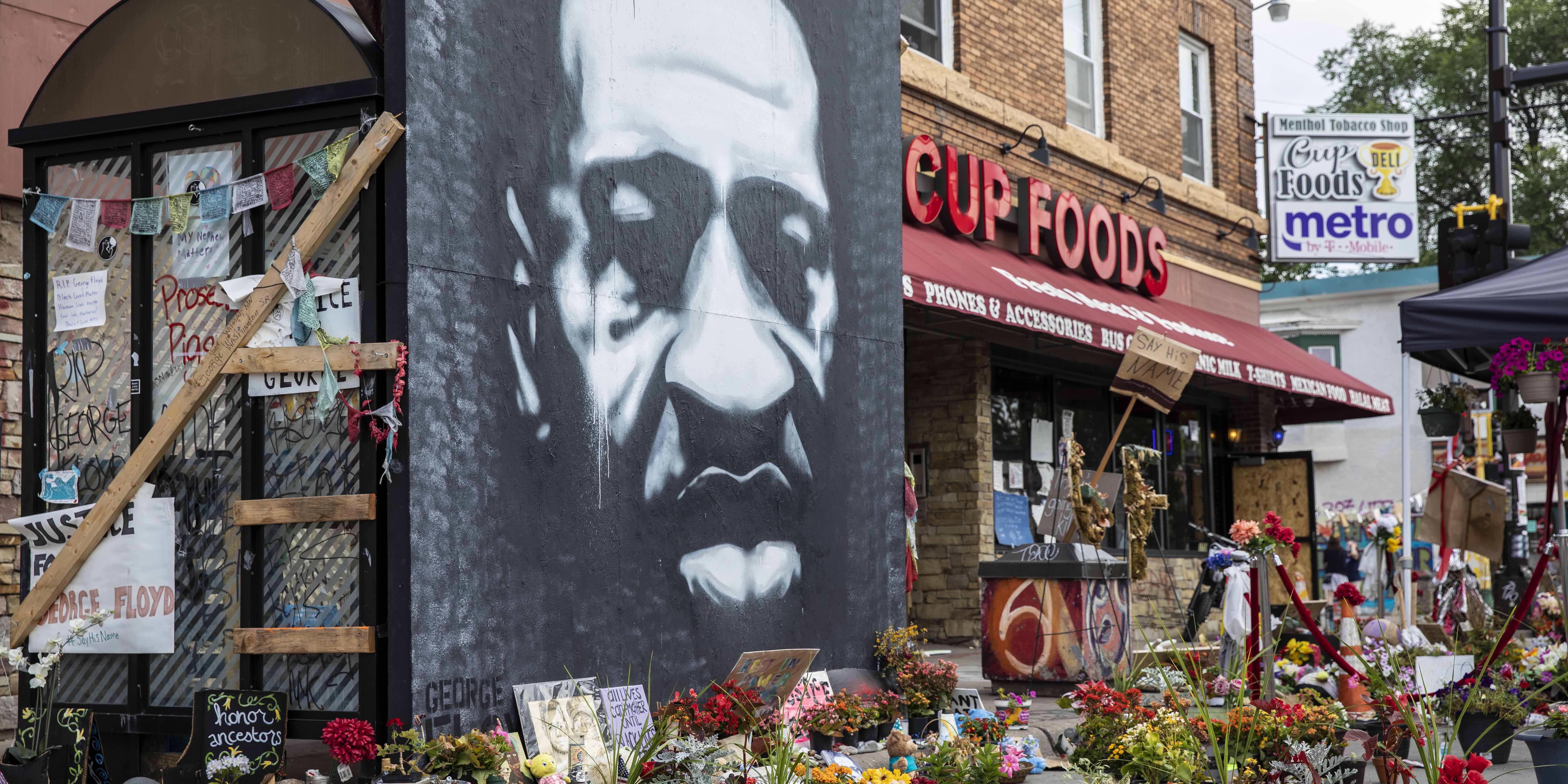
The site where George Floyd was killed has become a powerful place of mourning and remembrance, and it belongs to the community. We have included this photograph – which shows a portrait mural of George Floyd created by Peyton Scott Russell – because it centers on Black experiences and voices. This portrait mural is included in the George Floyd and Anti-Racist Street Art database. Photo by Mark Brown.
“We knew we needed to have racial equity and racial justice be a lens that we use in all of our Tommie Corps talks.”
Aside from volunteering, the program held learning sessions hosted by professors, staff members or community members on topics such as power and privilege. Training sessions for students also were scheduled.
Tommie Corps member Dessi Vargas said her time with Keystone Community Services working with people from a wide range of backgrounds will help in her future career. A senior studying biochemistry in the College of Arts and Sciences, Vargas hopes to one day work in the medical field.
“I’ve learned that it is really hard to ask for help, but that becomes much easier when you have a community that is designed to be there for you at your most vulnerable and make you feel like you belong,” she said.
Vargas was impressed by the diverse group of speakers that talked to Tommie Corps students about their experiences.
“This knowledge has been critical in the work we are doing to make us better volunteers … as well as the work we will continue to do moving forward in our lives,” she said.
Racial Justice Action Plan
After George Floyd’s death, a series of emotion-filled meetings held last summer for law school students, faculty and staff led to a commitment to making changes.
With input from the School of Law community, the Racial Justice Action Plan was created.
“It’s not simply a response to the murder of George Floyd; it’s a response to the racial inequities in our society and in the Twin Cities particularly, that the murder of George Floyd underscored in a very painful way,” School of Law Dean Robert Vischer said.
Three areas of focus outlined in the plan are: advancing societal reform, supporting professional formation and building a community of belonging. The plan is constantly evolving, and progress will be measured regularly.
“We’re a predominantly white law school community,” he said. “Our first step is to grow in self-awareness of areas we can improve, both internally – becoming a more welcoming community for all people where it’s easier for everyone to get a sense that they belong; and externally – how we can leverage the resources we have as a law school community to impact our surrounding culture.”
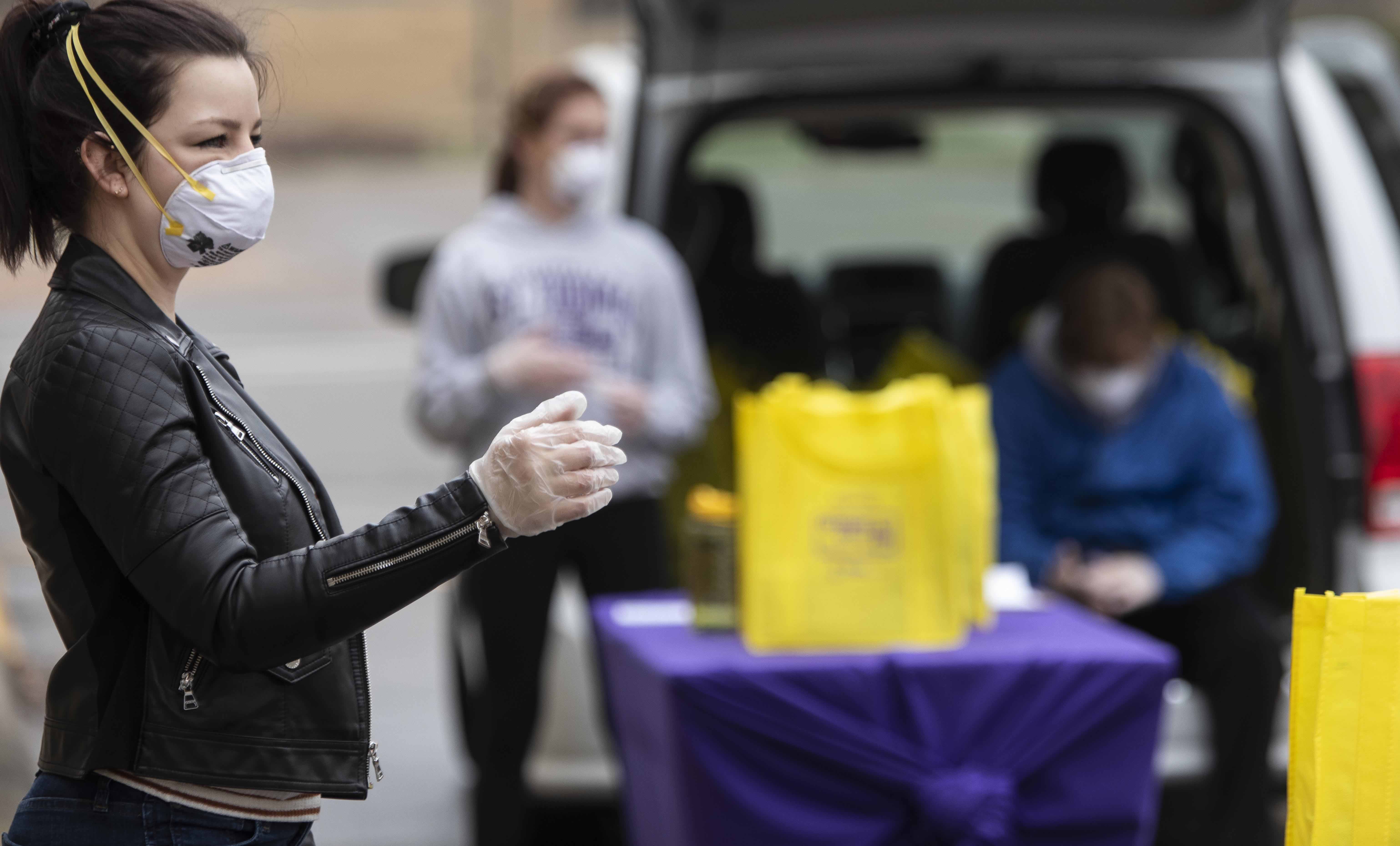
Center for the Common Good intern Johannah Freund hands out food to students and community members in need on south campus in St. Paul. Photo by Mark Brown.
Vischer said lawyers have a big part to play in the quest for racial justice.
“If you look back through our nation’s history, lawyers are almost always at the center of the struggle for justice,” he said. “Sometimes playing positive roles, sometimes playing negative roles. But lawyers are always there because the law is the shared language of social change. It’s not the exclusive set of levers, but it’s like an essential set of levers in facilitating justice in our society.”
George Floyd and Anti-Racist Street Art database
The killing of George Floyd last May reverberated across the world with people taking to the streets to protest police brutality and systemic racism. Some of those people responded by creating art.
College of Arts and Sciences associate professors Todd Lawrence (English), Paul Lorah (Geography) and Heather Shirey (Art History) are working to ensure the art created during this vital moment in history isn’t forgotten. They run the Urban Art Mapping Research Project that includes a George Floyd and Anti-Racist Street Art database. Along with student research collaborators, the team has documented hundreds of examples of street art since Floyd’s death as part of an ongoing movement demanding social justice and equality. (A COVID-19 Street Art database was started last April.)
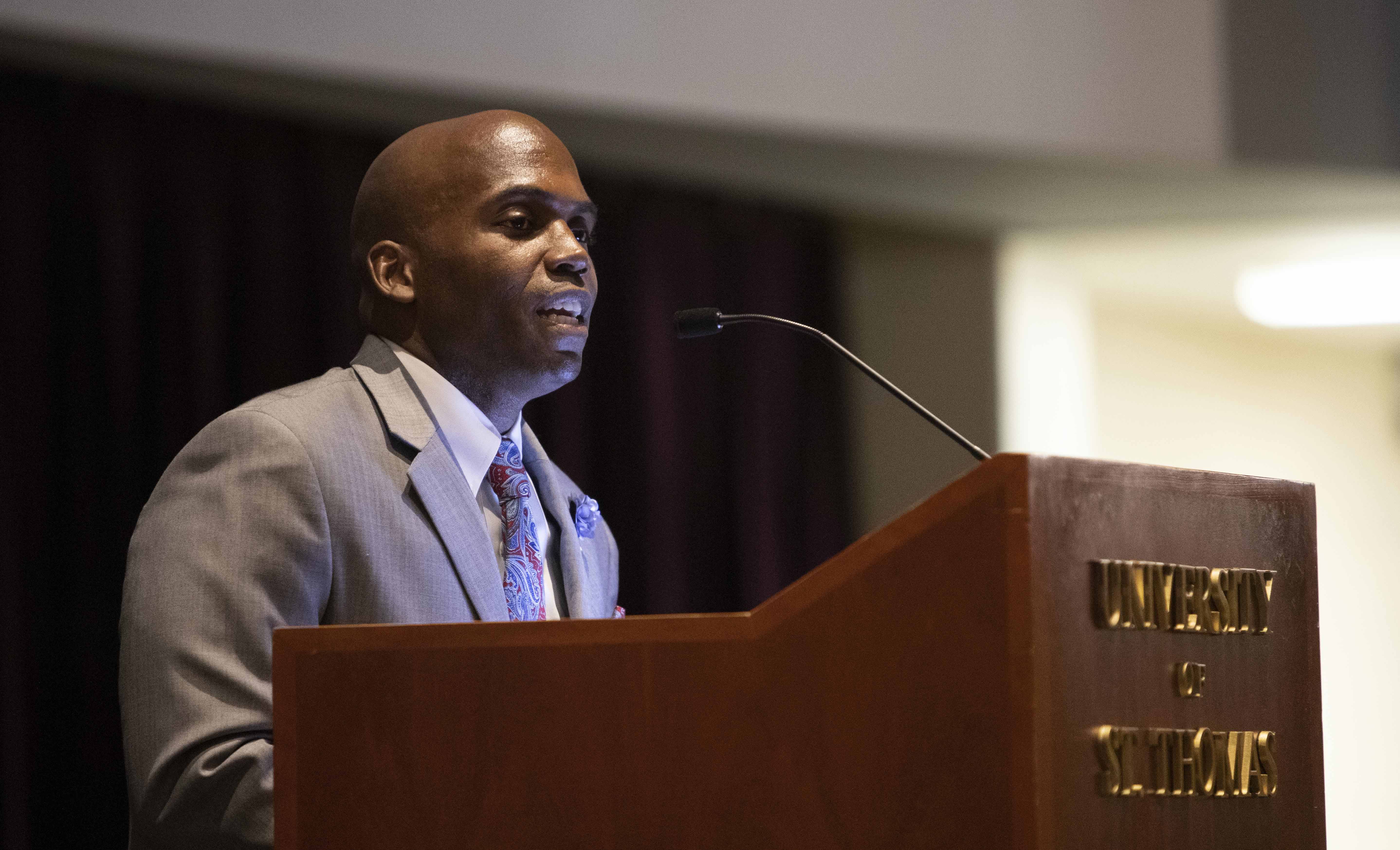
Distinguished University Chair, Professor and Founding Director of the Racial Justice Initiative (RJI) Yohuru Williams. Photo by Mark Brown.
“This is an important cultural moment, a historic moment,” Lawrence said. “And this is one way to preserve some of the communication around that, some of the cultural production inspired by the moment, and keep it in a place people can come back and look at it for as long as the computers are running. This is a way we’ll be able to revisit this moment and continue to think about what’s important.”
Shirey added: “We want to keep the voices that are on the walls alive. We want to make sure that they continue to be heard going forward so that this can be used as an active tool for anti-racism in the future, too.”
If you’re inspired to take action, the Center for the Common Good has collected opportunities to get involved at their Working for Justice site on stthomas.edu/center-for-common-good.
